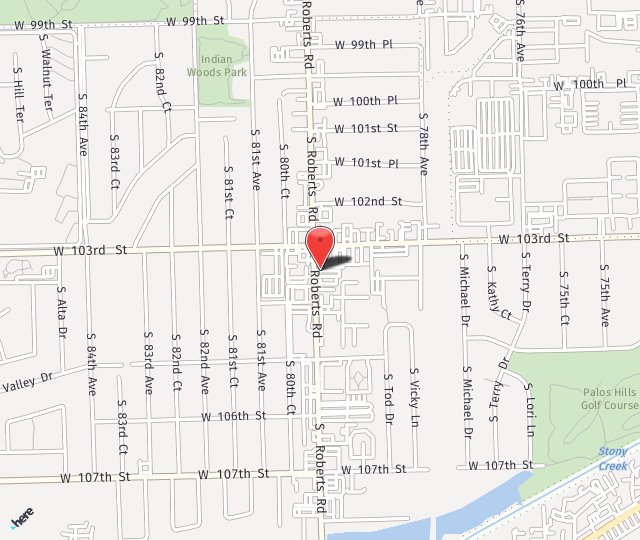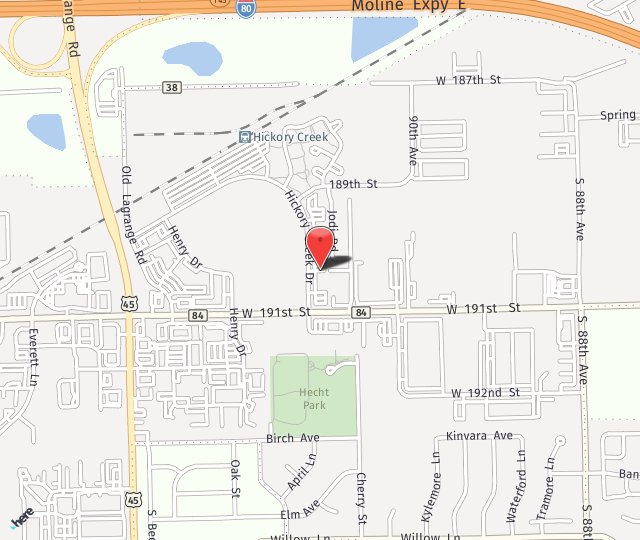Revision Total Knee Replacement in Chicago
With convenient locations in Palos Hills and Mokena, IL
Total knee revision replacement is a procedure that involves replacing a previous knee implant with a new one due to complications or wear and tear.
Dr. Sarkis Bedikian, a fellowship-trained orthopedic surgeon in Palos Hills and Mokena, IL, may recommend this surgery for patients with pain, instability, or other issues from an old knee implant. A total knee revision replacement can correct what went wrong, help improve your mobility, and allow you to get back to a good quality of life.

When is a Total Knee Revision Replacement Needed?
Many patients need a total knee revision replacement when a previous knee implant starts to wear out or fails. Some common reasons include:
- Implant loosening or instability: Over time, the artificial knee may begin to loosen, leading to discomfort and difficulty with movement.
- Infection: In some cases, infections may affect the knee implant, causing pain or complications.
- Implant wear and tear: The components may become worn or damaged years after the original knee replacement.
- Fracture: A break or fracture of the bone around the implant can sometimes require revision surgery.
Patients may also need a revision replacement if the original implant did not relieve pain or improve mobility as expected.
How to Prepare for a Total Knee Revision Replacement
Before undergoing total knee revision replacement, preparation is key to ensuring smooth surgery and recovery. Here's how you can prepare:
- Medical Evaluation: Dr. Bedikian reviews your medical history, performs a comprehensive knee joint exam, and may request imaging tests like X-rays, MRIs, or CT scans to assess the condition of your knee and the implant.
- Adjust Medications: You might need to temporarily stop taking certain medications, for example, blood thinners, before surgery to reduce the risk of bleeding.
- Physical Therapy: Strengthening the knee support muscles can help improve recovery outcomes. Dr. Bedikian might recommend pre-surgery physical therapy ("prehab") sessions.
- Recovery Plan: Arrange for help at home after surgery, as you will likely need assistance with daily activities for a short period.
What Happens During a Total Knee Revision Replacement?
Dr. Bedikian uses a knee incision to access the implant during a total knee revision replacement. The old implant will be carefully removed, and any damaged bone or tissue will be adjusted, removed, or repaired.
Then, Dr. Bedikian will place a new knee implant and secure it. The procedure is more complex than a first-time knee replacement, so it usually takes longer.
Dr. Bedikian uses advanced technology, including robotic-assisted technology, to improve precision and outcomes. This helps ensure the best fit for the new implant and minimizes the risk of complications.
Recovery from Total Knee Revision Replacement
Recovery after total knee revision replacement varies from person to person, but there are a few key aspects to consider for the best results:
- Pain Management: Pain is normal after surgery, but Dr. Bedikian uses proven pain management protocols, including Corganics. This may help you navigate recovery more comfortably and with a lower risk of problems than with opioids.
- Physical Therapy: Physical therapy plays a crucial role in recovery. With ROMTech, an innovative physical therapy option, you can access therapy through telehealth and at-home equipment to start regaining mobility right after surgery. This approach helps you move independently while staying connected with your medical providers virtually.
- Gradual Return to Activities: Most patients can start walking with assistance soon after surgery and gradually return to normal activities. Dr. Bedikian provides specific guidelines customized to your needs.
- Follow-Up Visits: You'll need regular check-ups to ensure your knee is healing well and to monitor the new implant's condition.
How Long to Recover from Total Knee Revision Replacement?
Most patients generally feel significant knee improvement after about 6 to 12 weeks. Full recovery can take up to a year, with continued improvement in mobility and function.
Following Dr. Bedikian's instructions closely and staying committed to your physical therapy provides the best outcomes.
Technology: Robotic-Assisted Procedures
Dr. Bedikian uses the most advanced state-of-the-art technology to ensure peak precision and minimize recovery time. He often uses robotic-assisted technology to ensure precise implant placement and full knee movement after surgery.
Knee Revision Replacement Consultations - Palos Hills and Mokena
If you're struggling with pain, stiffness, and frustration after a total knee replacement, we're here to help. Call Dr. Sarkis Bedikian's offices in Palos Hills or Mokena, IL, today to explore your options and take the first step toward better mobility.



